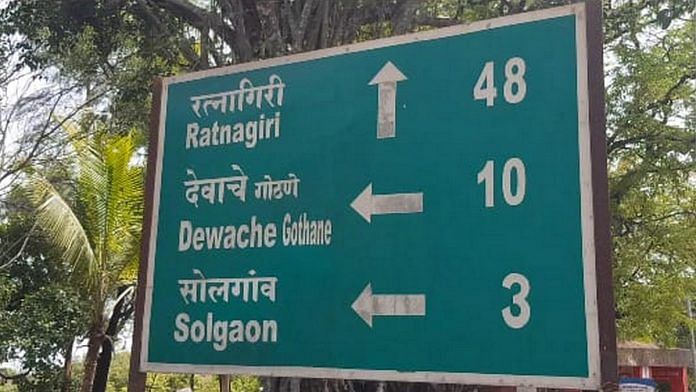Rajapur: Swaying coconut palms, mango orchards, and jackfruit trees provide some respite from the scorching May sun at the small village of Devache Gothane in Rajapur taluka of Maharashtra’s Ratnagiri district. But, a debate among four men gathered at a temple near the gram panchayat office is only growing more heated.
The bone of contention is the Ratnagiri Refinery and Petrochemicals Limited (RRPL) project, which was mooted by the Centre and the Maharashtra government in 2015. This ambitious green oil refinery was earlier supposed to come up in the Nanar area of Rajapur, but the plan was shelved due to staunch opposition by the locals and the Shiv Sena, which even went against its then coalition partner, the BJP.
Now, the Shiv Sena has adjusted its position. In power as part of the Maha Vikas Aghadi coalition with the Congress and NCP, the Shiv Sena is pushing for the project to come up at the same taluka’s Barsu-Dhopeshwar area (under which Devache Gothane falls) instead, claiming that it will cause less damage to the environment and that locals support it.
But, the matter is not quite so simple.
Both sites are located in the Konkan region and are separated by just a narrow river. While the new site is not as densely planted as Nanar, it is not barren either, as the Maharashtra government has argued. Also, the project has not yet earned unqualified acceptance.
“This refinery was destructive when it was to happen at Nanar, but now the same project is being hailed in other villages. Back then, Uddhav Thackeray had said the project would destroy Konkan and we should not let that happen… now it looks as if they have forgotten all that,” Kamlakar Gurav, ex-sarpanch of Devache Gothane said.
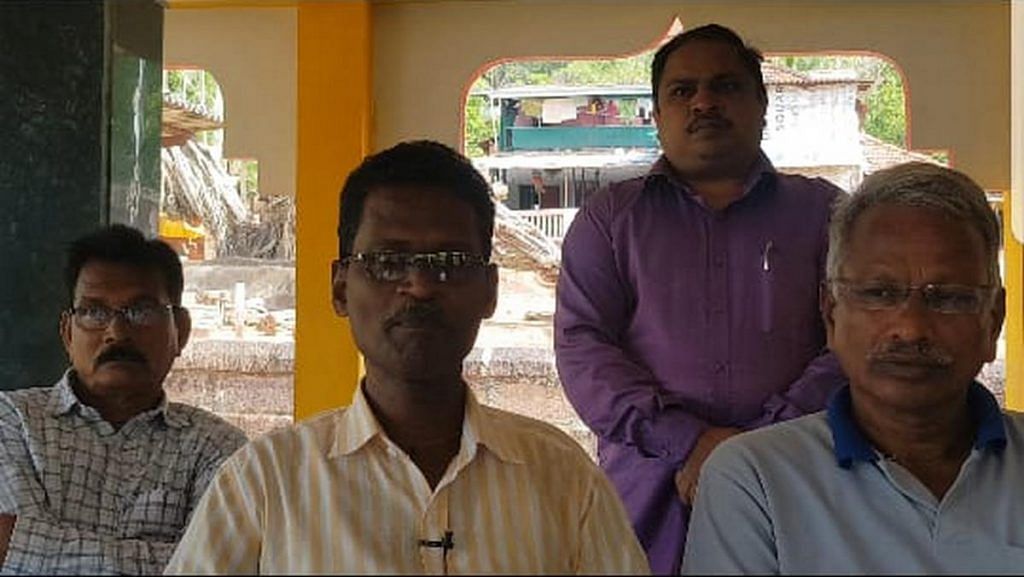
Speaking to ThePrint, Rajan Salvi, the Shiv Sena MLA from Ratnagiri, said that the shift in the party’s stance reflects a change in circumstances.
“Earlier in Nanar, 100 per cent of the locals were against it. But now there are supporters too and they want jobs; whatever is their demand, Shiv Sena stands with them,” Salvi told ThePrint.
However, when ThePrint visited the new site, clear fault-lines were apparent, much like in Nanar.
While some locals do indeed think the refinery will generate much-needed employment and development, others fear it will destroy the pristine coastline and the lush cashew and mango plantations. Many are also questioning the U-turn made by the Shiv Sena and Chief Minister Uddhav Thackeray.
For the Shiv Sena, therefore, balancing the proponents and critics of the project and justifying its own change of heart continues to be tricky proposition, especially considering that the party draws much of its strength from the Konkan region.
Also Read: After opposing mega oil refinery for 7 yrs, Shiv Sena open to alternative site in Konkan
Why the RRPL project was scrapped in Nanar
The Ratnagiri Refinery and Petrochemical Limited project was going to be Asia’s biggest oil refinery when it was proposed by the Central government and Maharashtra’s Devendra-Fadnavis-led BJP regime in 2015.
The plan was that the project would come up at Ratnagiri district’s Nanar area, located in the coastal Konkan region, as a joint venture between foreign oil giants Saudi Aramco and Abu Dhabi National Oil Company, as well as three Indian public sector oil firms — Indian Oil Corporation Limited, Hindustan Petroleum Corporation Limited, and Bharat Petroleum Corporation Limited.
The “mega refinery”, which would be built at an estimated cost of Rs 3 lakh crore, was expected to process up to 60 million metric tons of crude oil per annum and to produce a range of refined petroleum products meeting BS-VI fuel efficiency norms.
The excitement proved to be premature. The project met with stiff opposition from the locals at Nanar. The Shiv Sena, which has a significant support base in the area, backed the agitation and fought tooth and nail against the BJP, its alliance partner between 2014 and 2019.
One of the loudest voices of protest belonged to Uddhav Thackeray, who conducted rallies in Ratnagiri, even saying in one that he would not allow even “an inch of land” to be acquired for the project. His son, Aaditya Thackeray, also said that the Shiv Sena opposed the project as it would have had an impact on the environment and the “sons of the soil” were against it.
Finally, the project had to be stalled in 2019.
It is worth noting, however, that there was dissension in the Shiv Sena about the project. For instance, in June last year, more than 100 Shiv Sainiks in Konkan moved to the BJP as a mark of their displeasure at the refinery project at Nanar being held up.
What is different about the new site?
In March this year, Maharashtra Chief Minister Uddhav Thackeray wrote a letter to Prime Minister Narendra Modi, proposing to move the multi-billion-dollar refinery project to another, more suitable site in Ratnagiri.
Back then, State Industries Minister and Shiv Sena leader Subhash Desai had told ThePrint that villagers were “positive” and that the party had “no issues” with the project as long as the people supported it. Aaditya Thackeray, now Environment Minister, also declared he was ready to go ahead with the refinery as long as the local stakeholders approved of it.
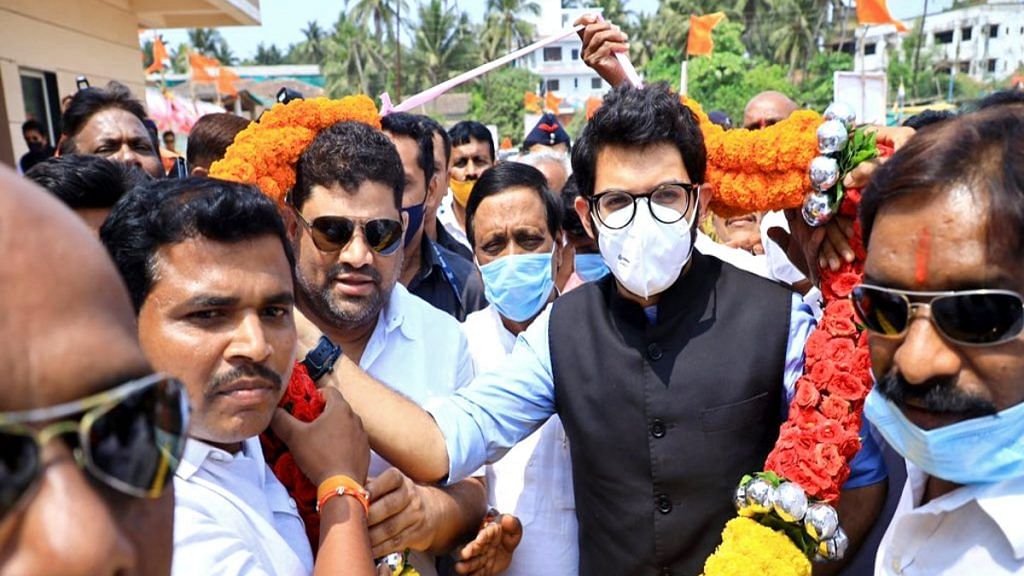
The new site, which like Nanar is in Rajapur taluka, is expected to impact the gram panchayats of Dhopeshwar (which includes Devache Gothane and Solgaon villages), Barsu, Panhale, Shivane Khurd, and Gowal. However, the effects are expected to be milder since the site is on a plateau and has fewer plantations.
The official notification for the refinery, however, is yet to happen.
When ThePrint visited the proposed site, a representative of the refinery said on condition of anonymity that the project was expected to take up about 7km of unoccupied land, and that unlike Nanar, there would be “no question of relocation” for any villages or houses.
Mahesh Shivalkar, a Rajapur town resident working president of the Refinery Samarthak Samanvay Samiti (support coordination committee), told ThePrint that there was no longer any reason to protest against the project since the land was “barren” and no one would be displaced.
“The technology has changed now and this refinery will be built based on the newer age technology. So those opposing should take proper knowledge about it and then speak,” Shivalkar added.
Yet, when ThePrint did a tour of the villages at the proposed site, many people still expressed reservations.
Worries about pollution, crops
The new proposed site for the refinery is 25-30km from Nanar, but only the modest River Arjuna separates the two hillocks where the old and new proposed refinery locations are situated.
Further, the area is not quite as “barren” as it is touted to be, causing concerns among farmers, as it had happened in the case of Nanar.
Amol Bole, a resident of Shivane Khurd, has 10 acres of land where he grows mangoes and cashews. The quality of his produce is good, he said, earning him about Rs 10 lakh a year. He fears that the refinery may cause pollution in the area, with a deleterious effect on crops.
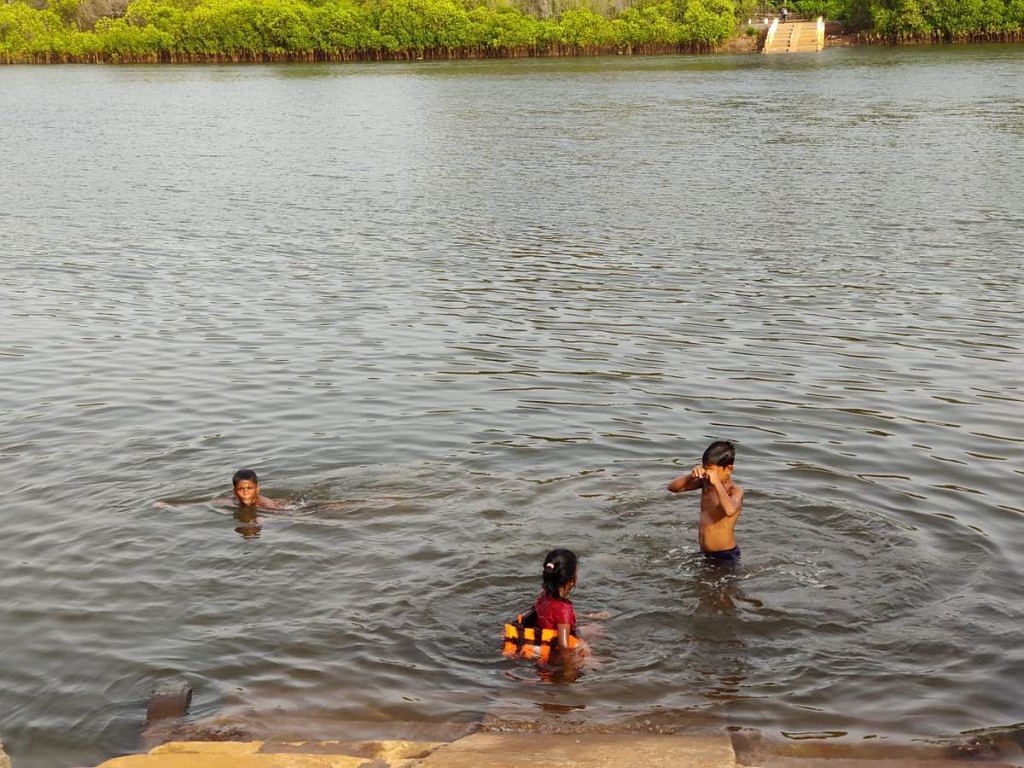
“Since this is a chemical project, it will have an adverse effect on my orchards and my production will go down,” he said. “Right now, the environment is conducive for Alphonso mangoes and cashews, but if the refinery is constructed, the atmosphere will change and it will impact our mangoes and cashews,” he added.
Another major source of income in this area is fishing, and here too there are fears that effluents in the water could affect the catch.
“It is a big loss for us. If the water gets contaminated, then what will we do? We don’t want to go anywhere else. With Rs 500-1,000 daily as my income, I am surviving and that is fine,” Shabuddin Patrakalu, a fisherman in Sogamwadi village near Devache Gothane, said.
Many here share this worry, with some residents trying to mobilise themselves against the project.
After the new site was proposed, five village panchayats — Gowal, Devache Gothane, Shivane Khurd, Solgaon, and Kodvali — passed a resolution stating their opposition to this project.
In the documents accessed by ThePrint, the villagers articulated their concern that since the refinery is situated at a higher altitude on a plateau, polluted water could flow down to their villages and potentially also damage ancient rock carvings.
On 30 March, several residents of these villages marched to the Rajapur tehsil office, asking the government to not go ahead with the project as it is harmful to the environment. Next month, Dhopeshwar gram sabha held a voting exercise in which 466 people said they opposed the refinery, and only 144 voted for it. Earlier this month, on 28 May, women from five villages gathered to protest the refinery in Solgaon.
Some villagers also say that they would prefer development projects that keep the local ecology in mind.
“We are not against development. Konkan is rich in diversity and boasts orchards of mangoes and cashews. So, if factories supporting that are built here, we will welcome them,” Kamlakar Gurav of Devache Gothane said.
‘Our children will not have to go to Mumbai or Pune for jobs’
“Support for refinery. We need employment”— so says a sign outside the house of Vinayak Kadam, a resident of Barsu village who grows mangoes and cashews on 4.5 acres of land.
“We studied what a refinery is. We went to Mumbai’s Mahul area. All that we see is development in the area. The country needs this project economically,” Kadam told ThePrint.
His uncle, he added, works at a refinery in Qatar, so he is aware of the benefits of such projects. He also claimed that he had spoken to refinery representatives.
“We spoke with the company. They are ready to sponsor education, give people good jobs. It will at least take seven to eight years to build the refinery, so locals will definitely benefit from it. Women will get to run the canteen, we are in constant talks with the company over this,” Kadam said.
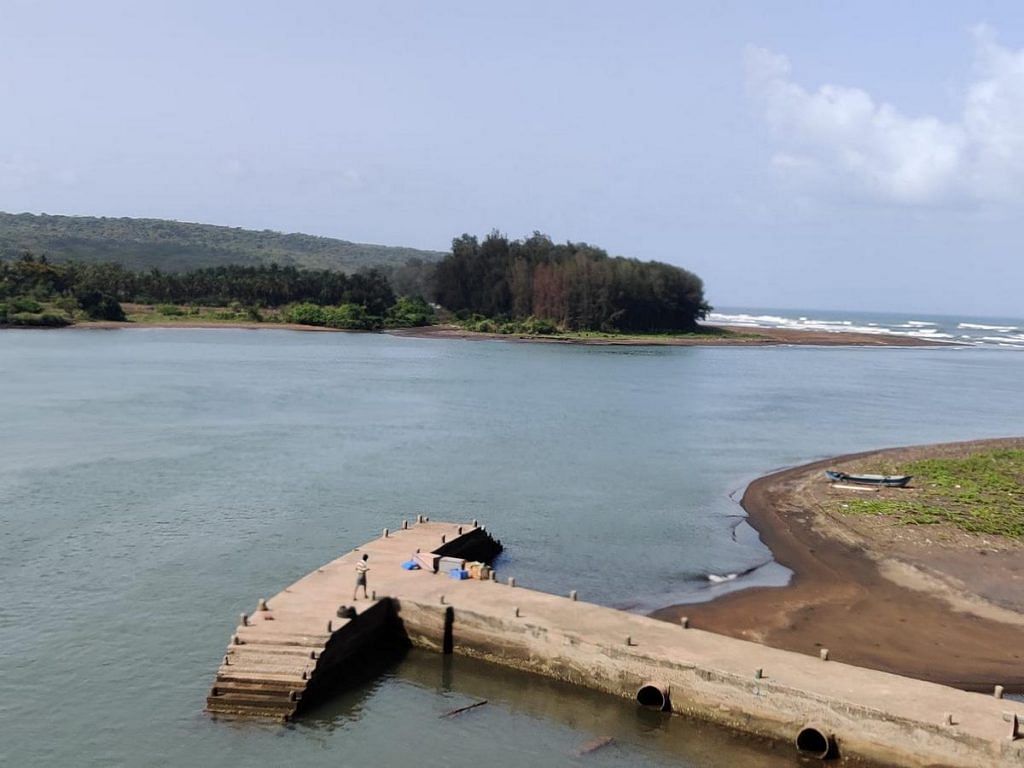
Manoj Pawar, a postman who works in Rajapur city, also thinks there are more benefits than drawbacks to the project. “This project has my full support. Youth here are unemployed. If the project comes this way, our children will not have to go to Mumbai or Pune in search of jobs,” he said.
Mahesh Shivalkar of the Refinery Samarthak Samanvay Samiti said that villagers needed to build their awareness about other refineries, like in Kochi and Jamnagar, to alleviate their fears.
“We keep LPG cylinders at home. Do we fear that it will blow up and so we should not keep it? Instead, LPG has helped take away the pain of stoves and burning of wood and has helped the environment,” he said.
According to him, the refinery will be a zero-discharge project, and will also improve infrastructure in the taluka. “There will be developments in healthcare, education, and infrastructure if the project happens, which is why we support it,” he said, further claiming that 57 out of the 101 gram panchayats in the region are in favour of the refinery coming up.
Shiv Sena walking on a tightrope
Even as the debate churns, the Shiv Sena is on slightly precarious footing as it promotes a project it had decried a few years ago.
The party’s stand continues to be that it will move forward only with the support of villagers, but it is driving home the point that the land is “barren” and that no one will be displaced.
On the matter of environment, however, there are no clear answers.
Ratnagiri MLA Rajan Salvi told ThePrint that he could not speak on “pollution aspects” since he is not an “expert”, but he did blame NGOs for allegedly sparking fear among locals.
“NGOs don’t have any connection with our region. But they meet people, give them some false information and try to create distrust. But we are trying to convince people who are opposing this project. Some are getting convinced, some are not, but we will keep trying,” Salvi said. “This project will give employment to youth. They are now going to Mumbai, Pune for jobs. In my region, we need development.”
(Edited by Asavari Singh)
Also Read: Sena also ‘settling scores through agencies’? How BMC notices to opponents bear party’s stamp


